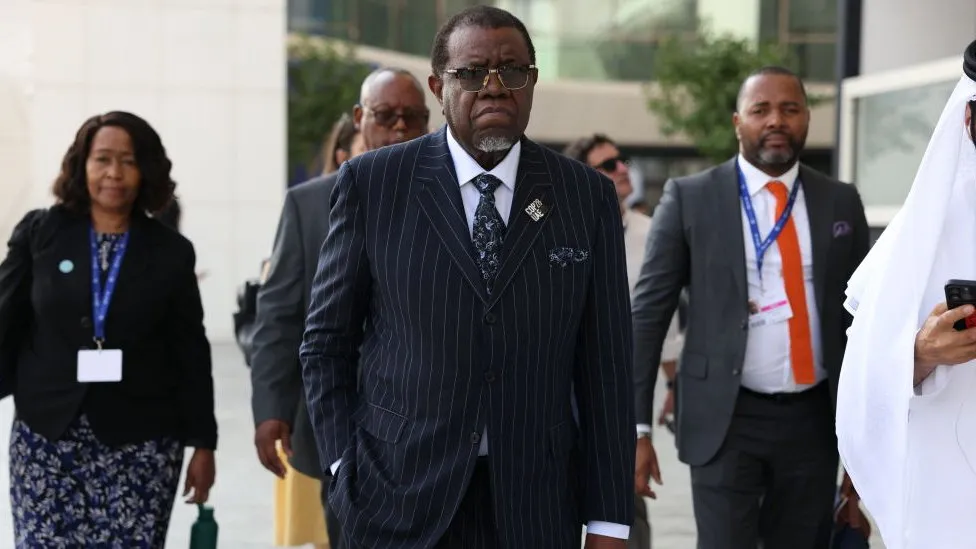SOME Namibians have been outraged after learning that President Hage Geingob’s four children joined the government’s delegation to the COP28 climate summit.
They were among six of the president’s family members listed as part of Namibia’s delegation in Dubai.
President Geingob’s office on Monday confirmed his children travelled to the city, but denied claims that their trip was state-funded.
The office did not say how other family members were paid for.
“President Geingob and Madame Geingos (first lady) paid for the flights and accommodation expenses of their children,” the Namibian Presidency posted on X on Monday.
“The Namibian public and the media should be rest assured that not a single cent of public funds has been spent on the children of the first couple.”
The presidency added that the claims were “malicious and politically motivated” and intended to distract from the “excellent work” by President Geingob and the Namibian delegation at COP28.
But some Namibians have dismissed the presidency’s response as unsatisfactory, saying it fails to prove that the travel of President’s Geingob’s children and his family members was privately funded.
Some critics have also asked the president to explain the role of his family members at COP28 and why they were listed on the government’s delegation if their trip was privately funded.
“You guys really think we are dumb? Why would they be included in the delegates list if they ain’t part of it? What is the relevance of them being in Dubai together with state delegates?” one Namibian replied on X.
“We anticipate a comprehensive report to be presented in [parliament],” said Namibian MP Inna Hengari.
She had earlier criticised the government for reportedly sponsoring the travel of the president’s family, yet claiming it lacked funds to facilitate the travel of an MP and parliamentary official to COP28.
The outrage echoes wider criticism against African governments for sending large delegations to COP28, which some citizens say exhibits financial extravagance.
Some governments including Nigeria, Tanzania and Kenya have defended their actions by saying that many of the delegates are not state-funded as they are representing the media, civil society organisations and private institutions.







